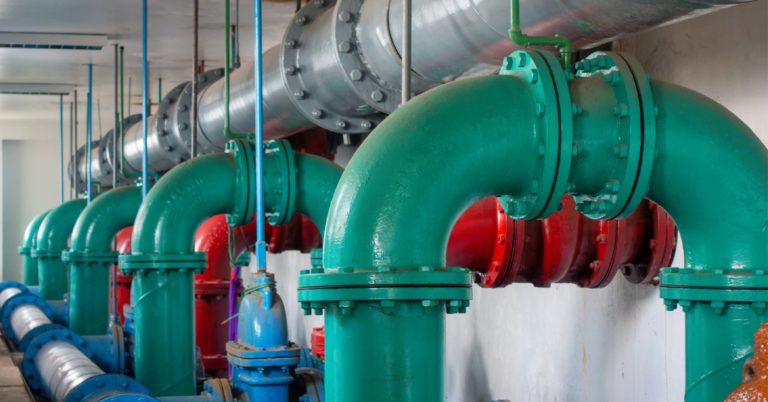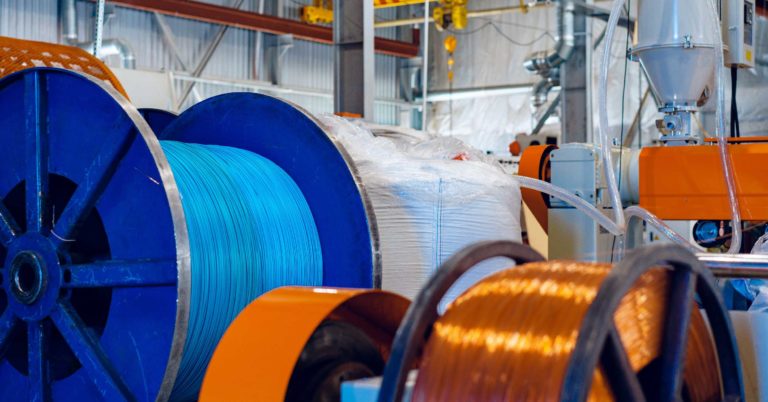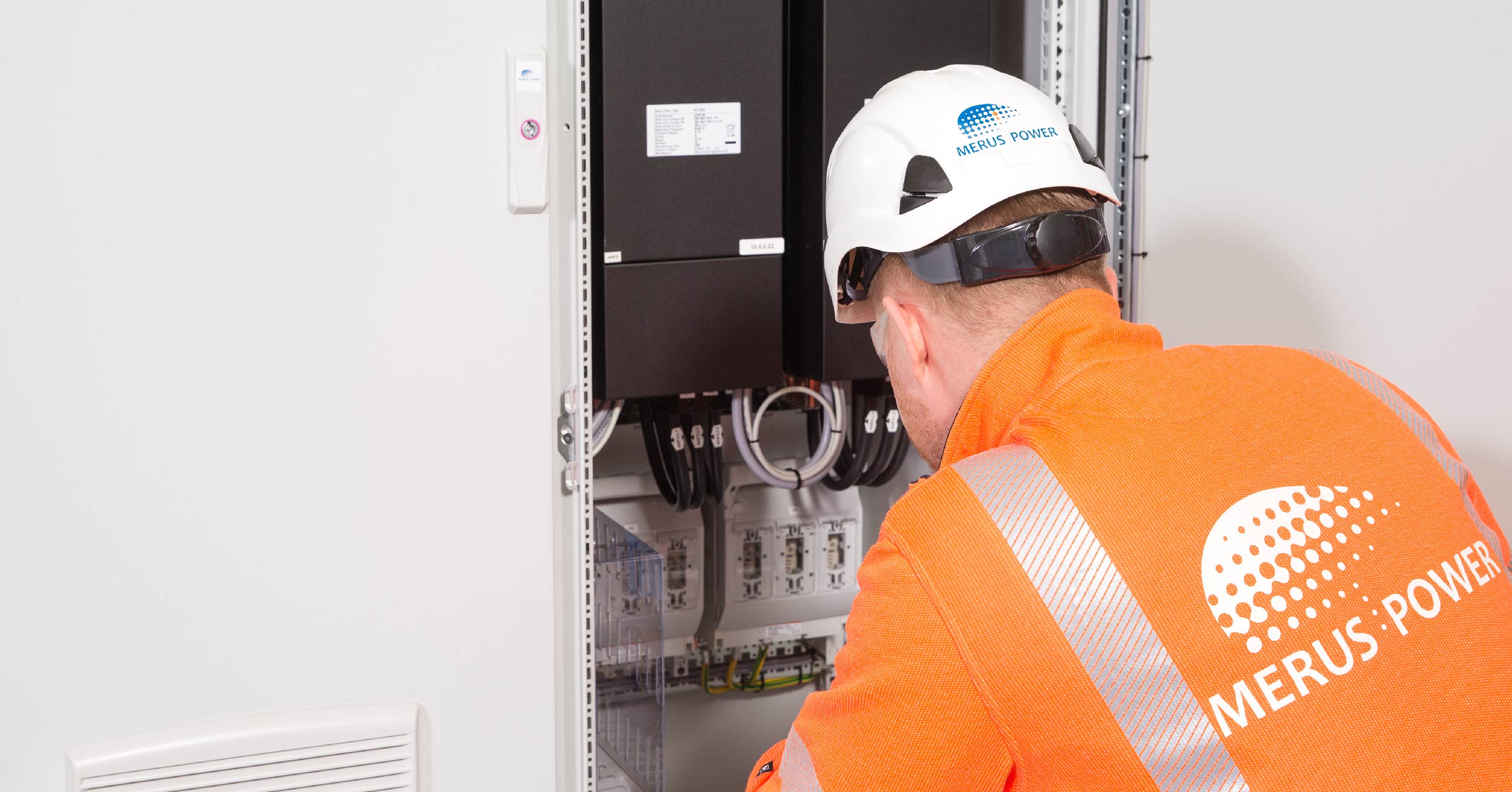
Merus® HPQ
Hybrid Power Quality
Compensator
Merus® HPQ is an all-in-one power quality system for combined
active harmonic mitigation and power factor correction.
Merus® HPQ is a hybrid power quality compensator that combines two existing technologies in one compact and well-performing solution. Its operation is based on two main components: a detuned capacitor bank and an active harmonic filter. The detuned capacitor steps fulfill most capacitive reactive power needs. At the same time, the Merus® A2-Active Harmonic Filter module handles the intermediate steps and inductive reactive power, filters the harmonic currents, and balances the unbalanced currents. Merus® HPQ is an all-in-one power quality system.
Customer benefits
- Improved power quality
- Lower energy costs
- Maximized productive time
- Reduced maintenance costs
- Optimization of embedded generation
- Centralized solution – one device needed
- Increased capacitor bank lifetime
- Modern and user-friendly interface
Technical benefits
- Performance exceeds existing technologies
- Contributes to G99/G100 compliance for embedded generation
- The active filter does not disturb the PFC-controller (no hunting)
- Enables simultaneous operation of traditional power factor correction and active harmonic filtering in the same PCC
- No unnecessary small steps to capacitor banks
- No additional CTs or PFC-controller required
- Higher effective compensation compared to traditional separate compensation systems
- Optimization of capacitor banks usage (FIFO)
How does Merus® HPQ operate?
Merus® HPQ system is connected in parallel with the loads, where the detuned capacitor bank will feed the capacitive reactive power need. Merus® HPQ can use a standardized and cost-efficient detuned capacitor
bank step ratio (1:1:1:1:1:1), because the Merus® A2-module will take care of the middle steps. Merus® A2-module controls the capacitor bank and receives measurement data from the current transformer, which can be installed to measure network or load side current (depending on the operation mode).
Simultaneously, Merus® HPQ mitigates harmonics, compensates reactive power, and balances unbalanced currents. The HPQ entirety solves all major power quality problems, even in demanding environments.
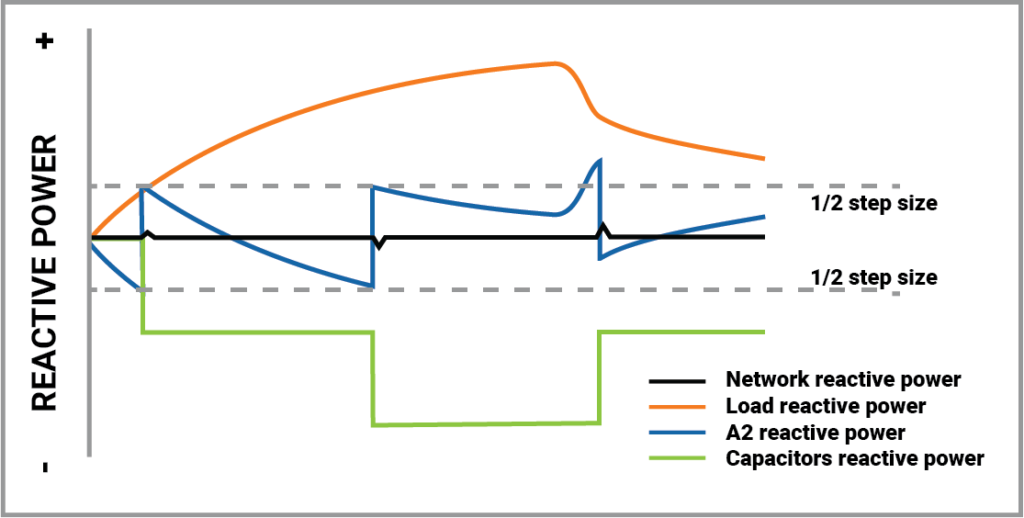
What operating modes does Merus® HPQ have?
Power Factor Correction (PFC) -mode
For gradually fluctuating loads in closed-loop configurations (traditional power factor correction control).
- Based on the traditional capacitor-application style, where the measurements are on the network side and the system can accommodate multiple loads. The switching speed for the capacitors is <1s and the contactor or the thyristors can be used as switches.
- Examples: printing, manufacturing, and water treatment.
Ultra-Fast (UF) -mode
For rapidly fluctuating loads in open-loop configurations.
- Mainly for the individual loads which are changing fast. In UF-mode, the capacitors are connected to the thyristors due to the required fast switching speed of <20ms. Typical applications for UF-mode are cranes or lifts.
- Examples: cranes and plastics.
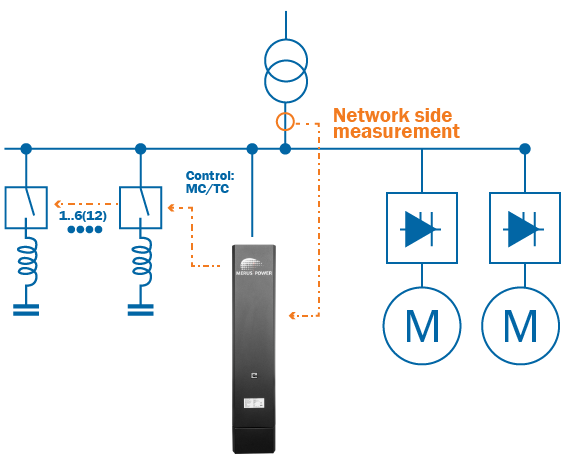
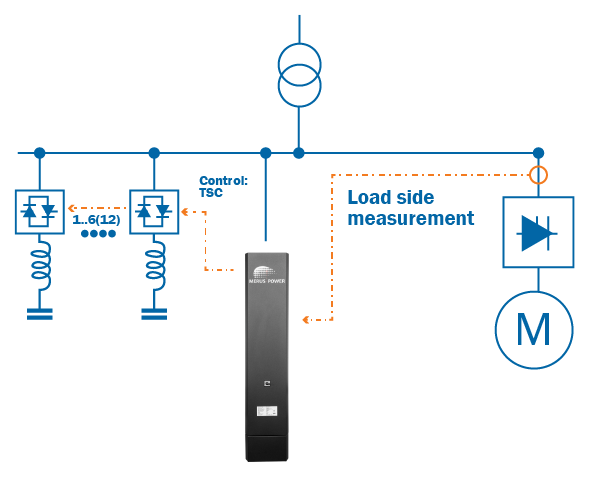
What makes Merus® HPQ stand out over a typical active harmonic filter and a passive power factor correction system?
- Typical passive PFC system has a limited ability to reduce harmonics and they do not cope well with unbalanced loads, while Merus® HPQ filters out harmonics and balances the unbalanced loads of the power system.
- Merus® HPQ eliminates the need to use different capacitor steps.
- Passive PFC systems require multiple capacitor steps to work properly.
- Merus® HPQ is a faster, more redundant, and scalable system for various types of industries and electrical loads.
- The capacitor bank’s lifetime is increased, compared to the traditional PFC system.
- All-in-one solution: harmonics mitigation and dynamic reactive power compensation in one system.
Do you have any questions?
Please contact one of our salespeople with questions and inquiries.

Riku Kalliomaa
Head of Sales, Active Harmonic Filter
Regions & Channels

Mikko Pohjola
Sales Manager, Active Harmonic Filter,
Key Accounts & OEMs

Viktoria Mansikkala
Sales Manager, Active Harmonic Filter
Baltics & Eastern and Southern Europe

Juhani Jaatinen
Senior Sales Manager,
DACH, Benelux, France, APAC

Venkatesh Ramachandra
Regional Sales Manager,
Middle East






